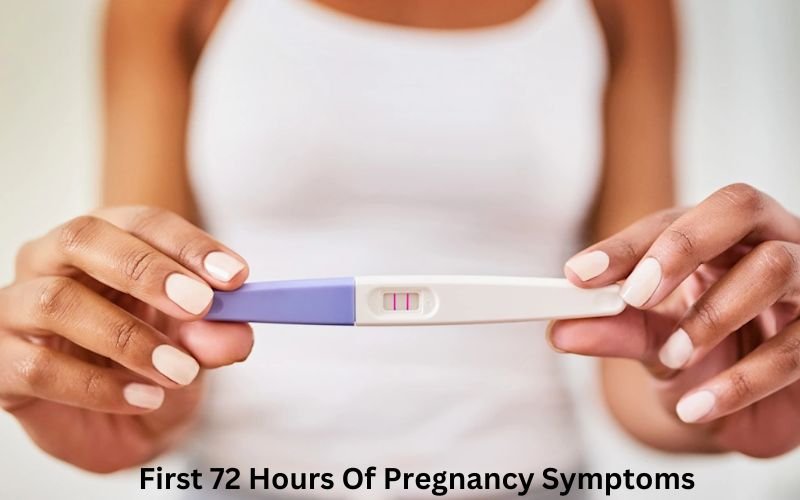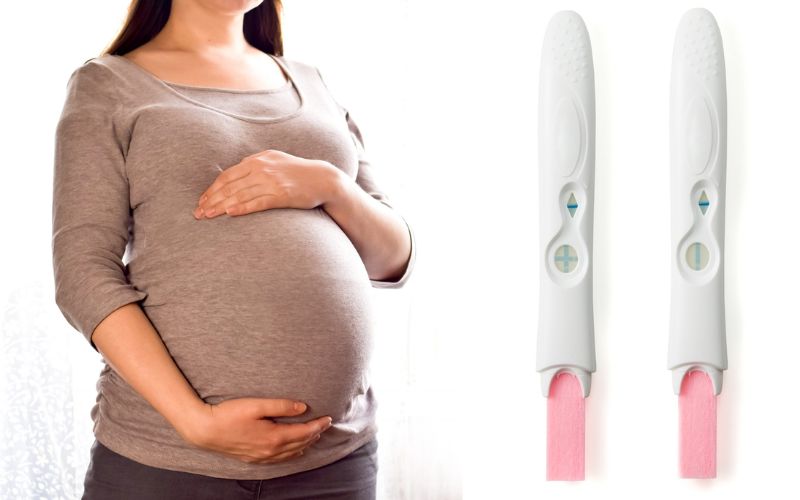For expectant moms, pregnancy is an exciting and frequently overwhelming time. Many women feel a variety of first 72 hours of pregnancy symptoms, such as nausea, exhaustion, breast tenderness, and frequent urination. These are just a handful of the early warning indicators of pregnancy before menstruation. In order to control these early indicators and guarantee a safe pregnancy, it’s critical to recognize them.
How Early Do Pregnancy Symptoms Appear?
Quantitative beta HCG blood testing may yield positive results as soon as one week following ovulation, even though you may not exhibit pregnancy symptoms 72 hours after conception. However, symptoms take time to manifest.
Actually, studies indicate that symptoms usually start to show around week five or six of pregnancy. 72% of pregnant women in one study discovered they were pregnant by the sixth week following their last menstrual cycle.
First 72 Hours Of Pregnancy Symptoms:
Apart from periods, there are various physiological events that indicate pregnancy. Find out about the changes in the body apart from period miss that can confirm pregnancy-
Missed Period
A missed period is one of the most prevalent indicators of pregnancy. It may indicate that you are pregnant if your period is delayed. To verify your pregnancy, it’s crucial to take a pregnancy test. Your urine’s concentration of the hormone hCG will be measured by a pregnancy test.
Positive Pregnancy Test
Pregnancy tests are the most accurate method of detecting whether or not you are pregnant. A home pregnancy test can typically find human chorionic gonadotropin (hCG) in your urine 12 to 15 days after conception, or approximately when your first missed period would occur.
Read also: Faint Positive Pregnancy Test: Are You Truly Pregnant?
Increased Temperature at Basal
An elevated basal temperature is among the initial signs and symptoms of pregnancy. When your body temperature remains above normal for an extended length of time, this occurs. Your body’s temperature at rest, or typically when you first wake up in the morning, is known as your basal temperature.
Implantation Bleeding
The light spotting that happens when the fertilized egg attaches to the lining of your uterus is called implantation bleeding. That is a typical part of the early stages of pregnancy and usually happens between 6 and 12 days after ovulation.
Nausea
Nausea, also known as morning sickness, is one of the most prevalent and early signs of pregnancy. During the first 72 hours of pregnancy, nausea is common in women and can range in severity from mild to severe. An upset stomach, a full feeling in the stomach, a constant want to throw up, increased salivation, and food aversions are some of the symptoms.
Fatigue
Fatigue is among the first symptoms of pregnancy in the first 72 hours. Many women discover that they are suddenly extremely tired and find it difficult to perform tasks or engage in activities that they were previously able to perform. The body produces more progesterone during pregnancy, which can lead to fatigue, which is the reason for this.
Sensitivity of the Breasts
One of the most typical symptoms during the first 72 hours of pregnancy is breast tenderness. You can get bigger breasts during this time, and you might also feel more sensitive and uncomfortable. Your nipples might also seem bigger or darker, and you might notice that they are more sensitive than normal.
Bloating
Bloating is a common symptom of pregnancy that many women experience in the first 72 hours of the pregnancy. It is caused by rising levels of hormones in your body, which can cause your abdomen to feel full or distended. Furthermore, you might experience a rise in appetite and increased frequency of urination.
Mood Swings
During the first 72 hours of pregnancy, mood swings are a typical symptom. Expectant mothers may go through abrupt and dramatic mood swings, from intense joy to depressive and anxious episodes. Early pregnancy-related hormonal changes are the likely cause of these swings.
Reasons to Avoid Taking a Pregnancy Test Too Soon
The majority of experts advise delaying taking a pregnancy test until after you have missed your period. This is due to the fact that several factors may distort the outcomes.
Testing too soon can also lead to more stress, particularly if you receive a negative result when you were hoping for a positive one. Furthermore, according to Dr. Demosthenes, you will need to retest in 72 hours if you take a test prior to your missed period and the results are negative. “You can retest every day, of course, but that is more expensive and stressful.”





